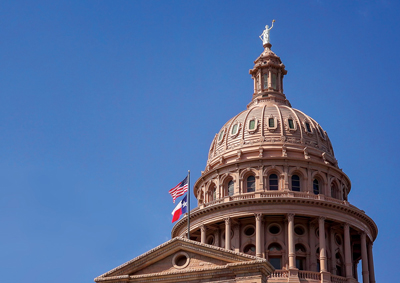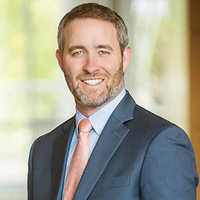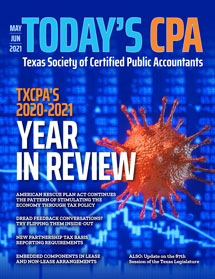July 01, 2021
It’s a Wrap for Now: The Session is Over, But the Battles Continue
By Kenneth Besserman, TXCPA's Director of Government Affairs and Special Counsel
On May 31, the Texas Legislature adjourned, concluding the tumultuous 87th regular session. The session began in a subdued fashion as legislators came to Austin after the winter holidays and the COVID-19 positive test cases were skyrocketing. There was a general unease about how the session would operate, uncertainty about vaccine availability, and a concern that the session might have to end early or be postponed because of the raging pandemic.
After a few months in Austin, the legislature began to operate closer to normal, but with much less public input and transparency than in past sessions. Before we get to the final few days of session (which were exciting, dramatic and controversial – more on that later) and what is to come in a special session, let’s review TXCPA successes and other major issues that were addressed.
| SPECIAL SESSION | DONATE TO CPA-PAC |
| GET INVOLVED | LEGISLATIVE SESSION |
The three major priorities of TXCPA (at the time of this writing – June 7, 2021) have been addressed. House Bill 1195 (Rep. Charlie Geren), which excludes loans forgiven under the Paycheck Protection Program from the Texas franchise tax, was signed by Governor Greg Abbott and became law immediately. This bill was important to our profession both as business owners and as CPAs so that we can properly advise our clients of the tax implications of federal forgiven loans.
Another important TXCPA legislative priority is Senate Bill 297, which will extend the CPA fingerprinting deadline by one year to August 31, 2022. The bill was signed by the governor on June 7. The pandemic year made it difficult for CPA licensees to submit their fingerprints timely, so this extension is necessary for the State Board and for our members.
Senate Bill 6 – the Pandemic Liability Act – is legislation that has been a priority of the governor, business community, health care entities, and trade/professional associations. All worked very closely since fall 2020 to ensure that businesses acting in good faith, followed government guidance, and did not maliciously or purposefully put customers and employees in harm’s way would not be subject to pandemic-related litigation. TXCPA was involved in those working groups to craft commonsense language to protect all during the pandemic. As of press time, SB 6 is also expected to be signed by the governor.
Beyond these three major priorities, TXCPA members and our government relations team were instrumental in making sure that any harmful legislation did not pass. Before session and in the early days of session, there were some rumblings that bills would be filed to expand the sales tax to professional services and bills to lessen the CPA licensing requirements. Fortunately, neither of these issues were picked up by the legislature, but TXCPA will stay ever vigilant on these issues as they are slowly being proposed in other states and may gain some adherents in the Texas Legislature in years to come.
The 87th session had a number of big and controversial issues (some of which passed, some did not, and some may be addressed in a special session) that took up much of the legislature’s time and energy. The state budget, the only bill that is required to pass each session, started out in uncertain territory when, in summer 2020, the Comptroller had indicated that the state was facing over a $3-4 billion budget deficit because of lower tax collections during the pandemic. That deficit shrank significantly in the early days of the session when the Comptroller issued his Biennial Revenue Estimate indicating that sales tax collections had rebounded sufficiently to make up for the deficit. Additionally, the federal government sent Texas $20-30 billion in federal stimulus funds in the CARES Act and the American Rescue Plan Act to assist the state in pandemic-related costs in the public education and higher education systems.
The big unanswered question in the budget – which is likely to be addressed in a special session – is how will the $10-12 billion in unappropriated funds be spent and who has the authority to spend or direct those funds. Both the governor and the legislature want authority to appropriate and direct those federal funds.
Redistricting is always an important, controversial and partisan issue every regular session after the Census. This session was starkly different in that the federal government had not yet released the detailed Census numbers to the states, so the legislature did not have any numbers and data with which to draw state and Congressional maps. That data is expected to be sent to the states in the late summer or early fall, thereby triggering a special session to draw political maps. Be prepared for a lot of partisan bickering about where the new Congressional seats will be located, where the new state representative and Senate lines will be, and for a long legal battle.
Another issue that was front and center this session was power grid reform. The legislature passed Senate Bill 2 and Senate Bill 3 that address some power grid reforms, but many suggest that the legislature did not go far enough. Senate Bill 3 only requires natural gas facilities that are deemed “critical” by regulators to be weatherized to withstand a weather emergency.
No widespread or required weatherization passed the legislature. There will be fines imposed on those facilities that do not weatherize if they are required to do so. Senate Bill 2 will restructure ERCOT to shrink the board from 16 to 11 members and eight of the 11 appointees would be selected by a committee of three appointed by the governor, lieutenant governor and speaker. Legislation also passed allowing power and gas companies to seek billions in ratepayer bonds to help those companies cover their financial losses and prevent customers from having large electricity bills in the short term.
There were a number of very controversial bills that took up much of the legislature’s time in the final weeks of the session. House Bill 1927 that allows the carrying of a firearm without a permit (also known as constitutional carry) passed after acrimonious debate.
The legislature also passed one of the most restrictive abortion bills in the country – prohibiting an abortion after a fetal heartbeat is detected. This bill too engendered a lot of heated debate in both chambers. This legislation, along with very similar legislation around the country, is sure to be challenged and may ultimately make its way to the U.S. Supreme Court.
The 87th session ended in a controversial manner because of the hotly contested Senate Bill 7 – legislation addressing election fraud and reform. Senate Bill 7 would have limited early voting options in large counties, reduced early voting hours on Sundays, required more identification for mail-in voting, reduced the number of early voting locations, and allowed partisan poll watchers to video people voting to watch for fraud or other issues.
The compromise bill passed the Senate on a strict partisan vote after many hours of debate. In the House, the Democrats tried to run out the clock on May 30 to prevent a vote before the midnight deadline. Hours before the deadline, many Democrats began leaving the House Chamber and the Capitol to break the legislative quorum and deny the ability to vote on the bill. Without a quorum, the House could not bring up the bill for a vote, thereby ending election reform this session.
All of these issues (and more) did not pass – election reform, transgender issues, social media censorship, redistricting, and federal stimulus funding. They are all expected to be on one or more special session calls in the summer and fall, but other than redistricting and appropriations, only time will tell if the governor adds these items to the call.
With the legislative session behind us, TXCPA can be proud of the great session we had. In this strange pandemic time where access to members and the legislative process was limited, we were able to make our voice heard and push for issues that are important to our profession. Thank you to our members, Key Persons, advocates, staff, and all those who made the 87th session a success.






